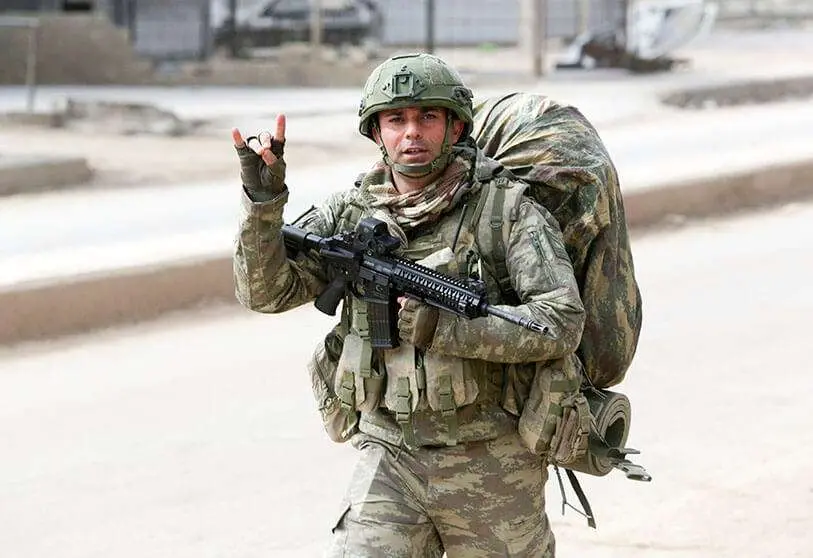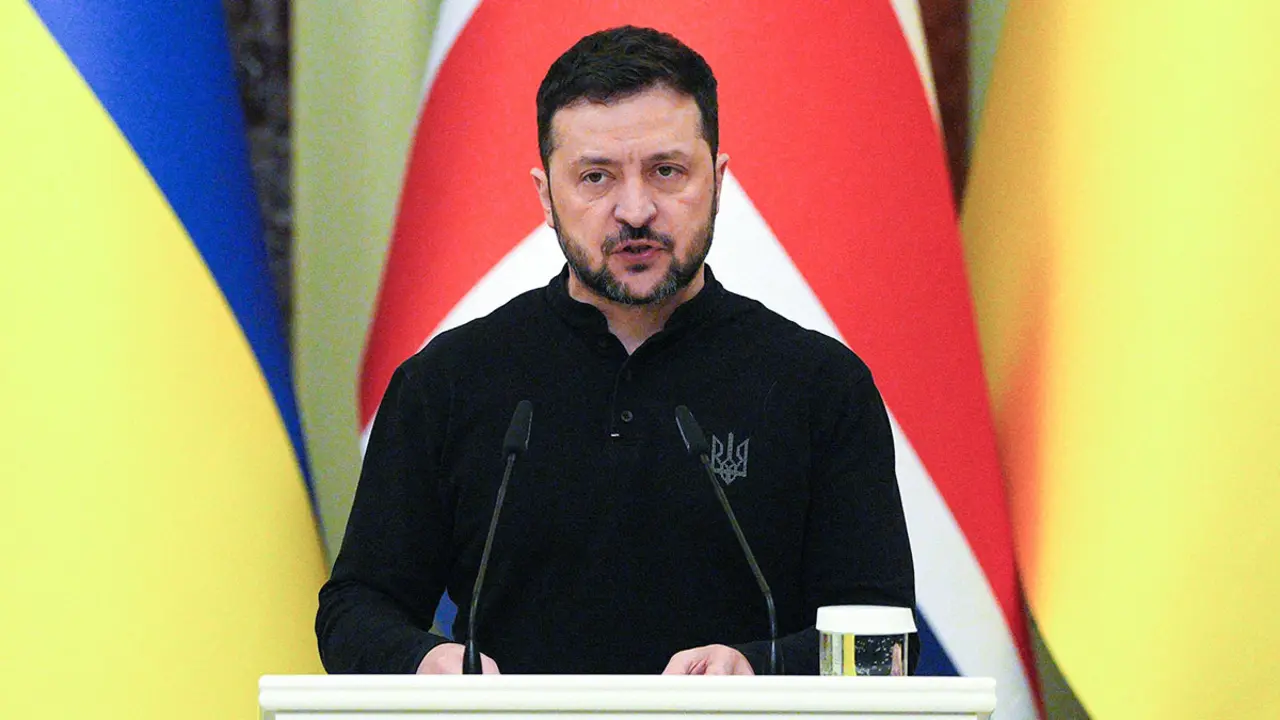Turkey admits the presence of troops in Libya and cooperation with the Muslim Brotherhood

“Two military men died there”, said Turkish President Recep Tayyip Erdogan, without specifying details about the identity, when they lost their lives or who was responsible. Thus, the Turkish president has admitted for the first time the death of two soldiers of his Army in Libya. In this way, Erdogan also acknowledges, in an unusual gesture until now, the presence of Turkish Armed Forces troops in the North African country. Sky News Arabia, for its part, has already raised the number of Turkish military deaths to 16.
Already on January 29, two Turkish warships, named Gaziantep and Qediz, arrived at the port of the Libyan capital, Tripoli, a fiefdom of the Government of National Unity (GNA), led by Prime Minister Fayez Sarraj and sponsored by the UN.
At this point, it should be recalled that this Friday, the Turkish president confessed that waves of Syrian mercenaries loyal to Ankara had been deployed in Libya, along with Turkish training personnel, although at the time he did not detail that they were soldiers of the Army.

In parallel, during these last two months, Ankara has also been sending ships with military equipment to Libya to support the side of the GNA. The latest such move took place on Sunday, when the other faction of the conflict, the National Liberation Army (LNA), led by Marshal Jalifa Haftar, detected a Liberian-flagged ship called Hansa Rottenber in the Libyan port of Misrata - located about 200 kilometers east of Tripoli - also controlled by the LNA. The vessel came from the Turkish port of Mersin and, according to local sources, was loaded with weapons.
This port infrastructure - located in the south of the country and on the northeast coast of the Mediterranean Sea - is the largest in Turkey. In recent weeks, it has taken on a special significance when it became known that other ships had also departed from there for Libya. This was the case with the ship flying the Lebanese flag, Bana, which never reached its destination, Tripoli, because it was intercepted by the Italian authorities in the city of Genoa.

Along these lines, it should be noted that the LNA's spokesman, Ahmed al-Mismari, denounced this Tuesday that Turkey is transferring arms and military equipment to Libya through the port of Misrata. “The reconnaissance and intelligence units confirm the arrival of Turkish arms and military equipment at Misrata seaport to support terrorist organisations and armed groups in the western region”, he said on the LNA's Facebook page. “We want to make this support public to the international community, because it is a violation of the truce declared in the region”, he said.
The cooperation between Ankara and the LNA is also on the economic level. The Al-Arab media revealed on Monday, quoting the head of the liquidity committee of the Central Bank of Libya, Ramzi Al-Agha, that Sarraj had given the order to transfer four billion dollars to the Central Bank of Turkey, as payment for military services provided by Ankara, including, for example, the treatment of wounded soldiers.

On Tuesday, it was also reported that the Chairman of the State Consultative Council of Libya - a body within the NAG government - Khaled al-Mishri, met with the Turkish Ambassador to Libya, Serhat Aksan. This meeting is extremely important, because it proves the relationship of cooperation between Ankara and the Muslim Brothers in the North African country, since al-Mishri is also the leader of the Justice and Construction Party, the political arm of the Egyptian organization considered as terrorist by Saudi Arabia and the United Arab Emirates (UAE). Although the details of the meeting have not been disclosed, local media Ewan Libya explains that both parties “discussed the latest developments in the political field and bilateral relations between Turkey and Libya”.
Another local publication, Libya Akhbar, has revealed, along these lines, that “Sarraj has allied himself with the terrorist militias of the Muslim Brothers and other armed organizations to guarantee his stay in Tripoli”, according to national parliament member Saeed Mugheeb.

In the Libyan civil war, Qatar - which is also accused of being linked to the Muslim Brotherhood - has shown its explicit support for the ANG, as has Turkey, the only two countries in the international sphere to have sided with this faction. However, it should be noted that recently it seems that Tunisia has been turning more and more towards this axis. The first sign of this possible alignment took place on 18 February, when four Turkish warships docked in the Tunisian port of La Goulette. Although it was not known whether or not they were carrying weapons, their mere presence in the waters of the North African country set off alarm bells.
The second and last demonstration, until now, took place this Monday, on the occasion of the bilateral meeting that the Tunisian president, Kais Saied, had with the Qatari emir, Tamim bin Hamad al-Thani. The two leaders agreed “to invite various tribes to hold a second extended meeting in Tunisia to end the fighting, wars and divisions”. The first meeting was held following a request by the head of state of the Supreme Council of the Tribes of Libya, with the aim of stopping the bloodshed and promoting reunification among people from the same country.

However, the most significant thing about the bilateral summit was that both acknowledged that their views on the war in Libya are “identical”, which seems to take Tunisia away from its official position as a mediator between the two sides that it has so far tried to adopt.








